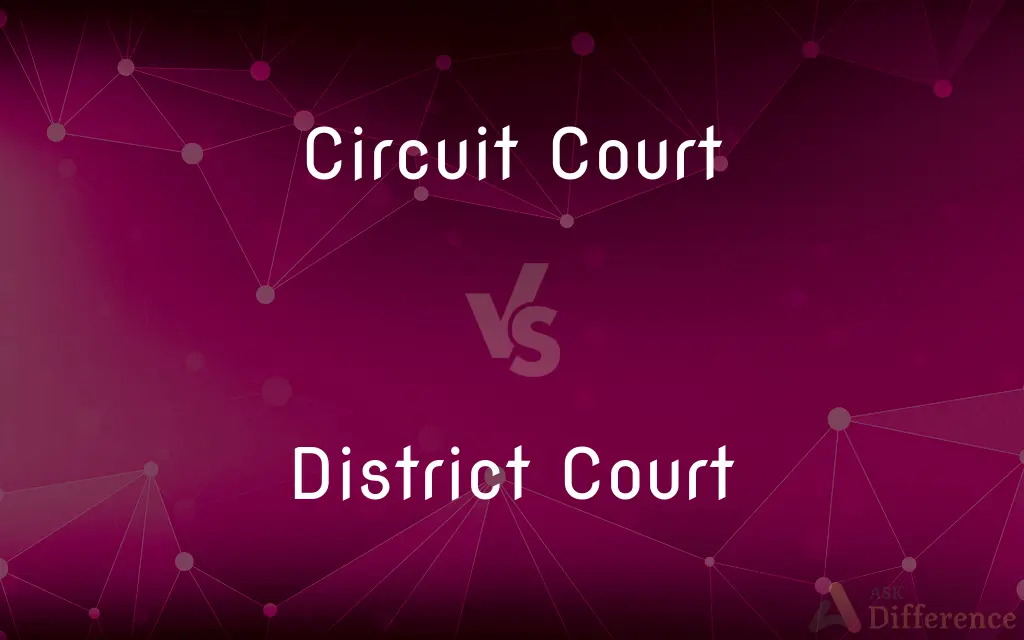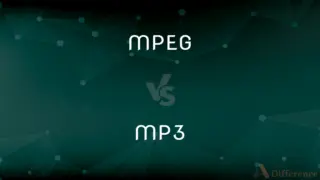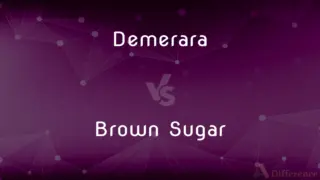Circuit Court vs. District Court — What's the Difference?
Edited by Tayyaba Rehman — By Fiza Rafique — Published on November 20, 2023
Circuit Courts handle appellate jurisdiction; District Courts manage initial trial jurisdiction. Both are integral to the judiciary.

Difference Between Circuit Court and District Court
Table of Contents
ADVERTISEMENT
Key Differences
Circuit Court and District Court are both crucial components of the U.S. judiciary system, but they serve different functions. Circuit Courts, also known as appellate courts, review decisions made in lower courts, while District Courts handle trials for federal cases.
Circuit Courts play a pivotal role in ensuring that justice is correctly administered. They review and decide on the appropriateness of decisions made by other courts, including those from District Courts.
On the other hand, District Courts are where cases start. They're the trial courts of the federal system, and their rulings can be appealed to the Circuit Court in their respective circuits.
Within the federal system, there are multiple District Courts across the country, each corresponding to a geographical area. The decisions from these courts, if appealed, move up to the Circuit Courts.
To summarize, while both Circuit Court and District Court are instrumental in the legal process, they operate at different levels. District Courts address initial trials and factual findings, while Circuit Courts handle the reviews and appeals of those decisions.
ADVERTISEMENT
Comparison Chart
Primary Role
Handles appellate jurisdiction.
Manages initial trial jurisdiction.
Type of Cases
Reviews decisions from lower courts.
Handles federal civil and criminal cases.
Geographical Spread
Divided into circuits covering multiple states.
Specific to regions within states.
Hierarchy
Above District Courts in the federal hierarchy.
Initial level in the federal court system.
Decision Impact
Can set legal precedents.
Decisions can be appealed to Circuit Courts.
Compare with Definitions
Circuit Court
An appellate court reviewing lower court decisions.
The decision was appealed and taken to the Circuit Court for further review.
District Court
A federal trial court handling initial court proceedings.
The lawsuit was filed in the District Court of Nevada.
Circuit Court
A federal court that handles appeals from District Courts within its circuit.
The Circuit Court in the Ninth Circuit has jurisdiction over several western states.
District Court
A court with judges appointed for life by the President.
The judge in the District Court was recently appointed by the current administration.
Circuit Court
A court divided into regional circuits across the U.S.
Their case was presented in the Seventh Circuit Court, which covers parts of the Midwest.
District Court
A court that operates within specific geographic boundaries.
The Southern District Court of New York covers specific counties within the state.
Circuit Court
An intermediary between District Courts and the Supreme Court.
Before reaching the Supreme Court, the case was debated in the Circuit Court.
District Court
Where federal cases begin and are first tried.
Their patent infringement case was set for trial in the District Court.
Circuit Court
A court that ensures accurate legal interpretations in appealed cases.
After a controversial ruling, the case's fate rested with the Circuit Court.
District Court
The primary venue for litigation involving federal matters.
The District Court has jurisdiction over cases like bankruptcy and federal crimes.
Common Curiosities
What is the primary function of a Circuit Court?
A Circuit Court reviews decisions from lower courts, especially District Courts.
What types of cases does a District Court handle?
District Courts handle federal civil and criminal cases at the trial level.
Are Circuit Courts higher than District Courts?
Yes, Circuit Courts are appellate courts and are above District Courts in the federal hierarchy.
Can decisions from a Circuit Court be appealed?
Yes, decisions from a Circuit Court can be appealed to the U.S. Supreme Court.
Do District Court decisions set legal precedents?
Typically, legal precedents are set by appellate courts like Circuit Courts, not District Courts.
Who appoints judges to Circuit and District Courts?
Judges for both Circuit and District Courts are appointed by the President and confirmed by the Senate.
How many District Courts are there in the U.S.?
There are 94 District Courts in the U.S.
Are Circuit Courts restricted geographically?
Yes, Circuit Courts cover specific geographic circuits which may include multiple states.
Which court has more judges, Circuit or District?
District Courts collectively have more judges as there are more District Courts than Circuit Courts.
Can state cases be brought to a District Court?
Generally, District Courts handle federal matters, but they can address state cases under certain conditions, like diversity jurisdiction.
What happens if a case in a District Court is appealed?
If appealed, a case from a District Court goes to the Circuit Court of that jurisdiction.
Can both Circuit and District Courts handle criminal cases?
District Courts handle the trial phase of federal criminal cases. Circuit Courts can review these cases if appealed.
How many Circuit Courts are there in the U.S.?
There are 13 Circuit Courts in the U.S.
How are the circuits for Circuit Courts determined?
Circuits are geographically determined, with each circuit covering several states or a specific region.
How long do judges serve in District Courts?
District Court judges, like Circuit Court judges, are appointed for life.
Share Your Discovery

Previous Comparison
MPEG vs. MP3
Next Comparison
Demerara vs. Brown SugarAuthor Spotlight
Written by
Fiza RafiqueFiza Rafique is a skilled content writer at AskDifference.com, where she meticulously refines and enhances written pieces. Drawing from her vast editorial expertise, Fiza ensures clarity, accuracy, and precision in every article. Passionate about language, she continually seeks to elevate the quality of content for readers worldwide.
Edited by
Tayyaba RehmanTayyaba Rehman is a distinguished writer, currently serving as a primary contributor to askdifference.com. As a researcher in semantics and etymology, Tayyaba's passion for the complexity of languages and their distinctions has found a perfect home on the platform. Tayyaba delves into the intricacies of language, distinguishing between commonly confused words and phrases, thereby providing clarity for readers worldwide.












































